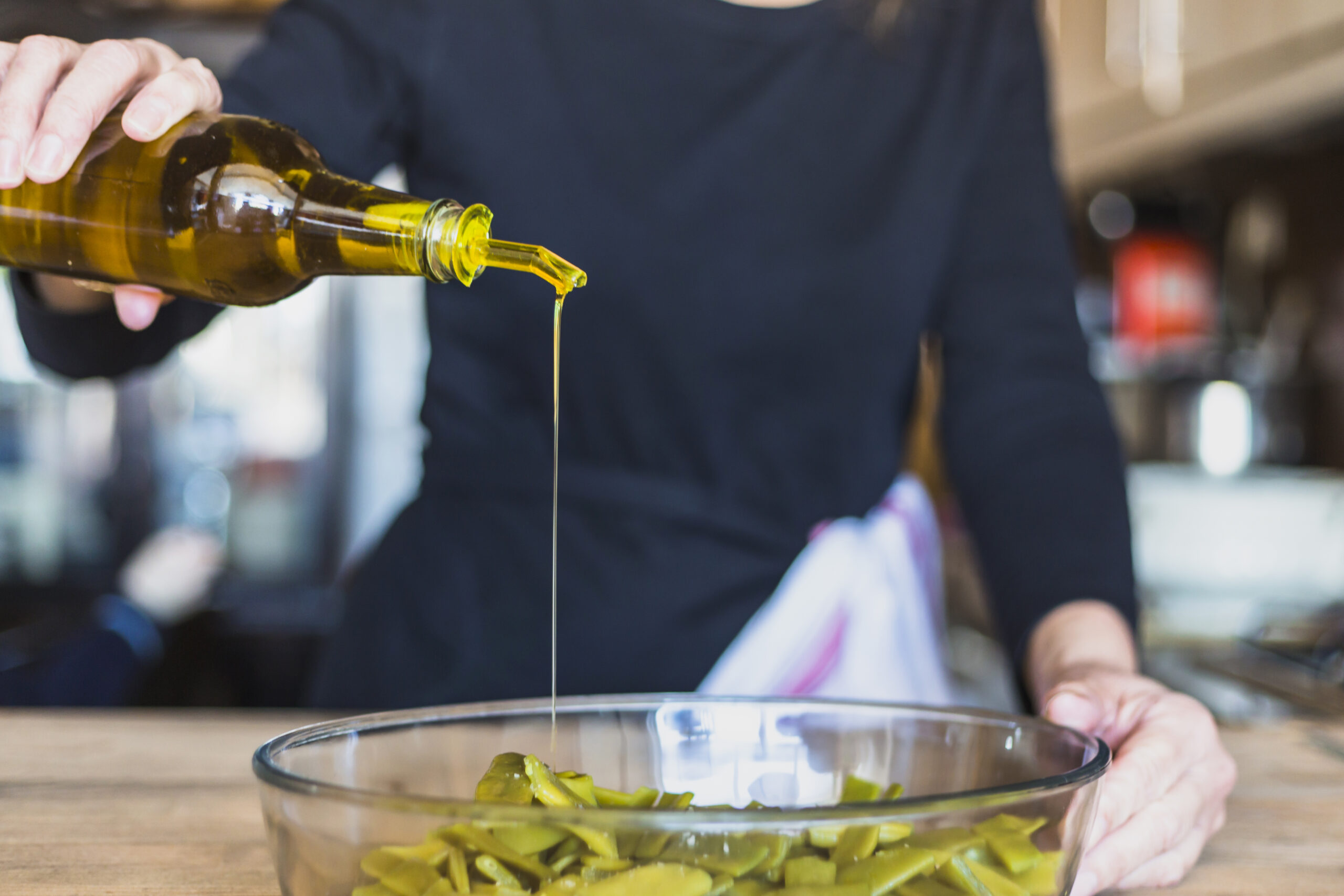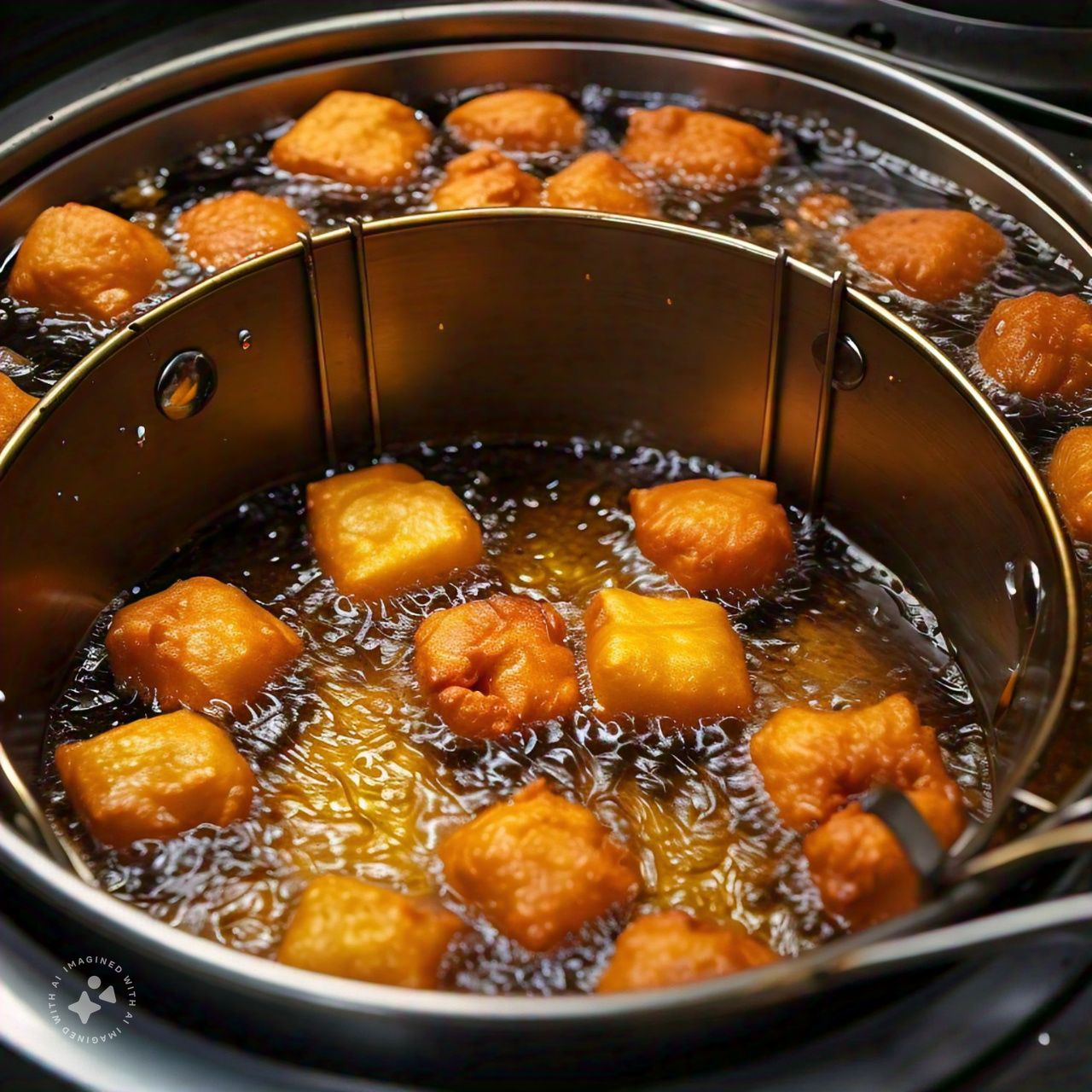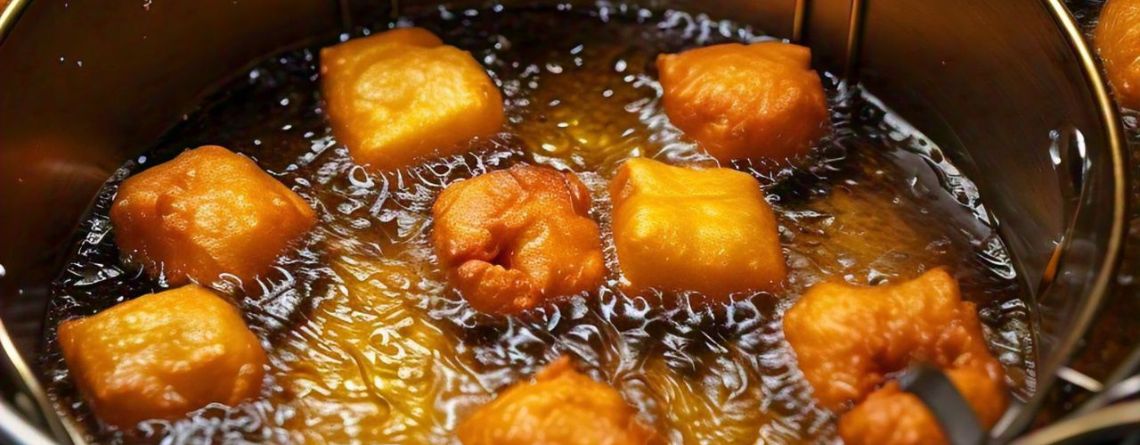How to Choose the Best Cooking Oil? Here’s a FREE 101 Guide
One of the most common questions in my inbox and DMs is: Luke, which is the best cooking oil?
When it comes to cooking, choosing the right oil is not just about flavor—it’s also about health. A good cooking oil can elevate your dishes while supporting your overall well-being. Here’s a breakdown of the best cooking oils for Indian kitchens, focusing on their smoke points, fatty acid composition, and health benefits.
The Big Question: What Should You Look for in a Good Cooking Oil?
A good cooking oil should have the following qualities:
1. High Smoke Point: Oils with a high smoke point are stable at high temperatures, making them perfect for frying and deep-frying.
2. Balanced Omega-3 and Omega-6 Ratio: Maintaining a healthy balance between these essential fatty acids is key for heart health and reducing inflammation.
3. Rich in Antioxidants: Antioxidants in oils prevent oxidative stress and promote anti-inflammatory effects.
4. Appropriate Fat Composition: A balance of saturated and unsaturated fats (MUFA and PUFA) supports heart health, weight management, cellular function, and overall health.

Which Are the Best Cooking Oils for Indian Cooking?
#1 Mustard Oil
- Smoke Point: ~480°F (250°C)
- Omega-6 to Omega-3 Ratio: ~ 6:5
- MUFA/PUFA: High MUFA (~60%), moderate PUFA (~21%)
- Frying Suitability: Excellent for high-heat cooking and deep frying.
- Inflammatory Properties: Anti-inflammatory
- Antioxidant-Rich: Contains glucosinolates, which have antibacterial, antifungal, and anti-cancer properties.
- Nutritional Composition:
- Rich in vitamins A, C, and E.
- High in minerals like selenium, magnesium, calcium, and potassium.
#2 Ghee
- Smoke Point: ~485°F (252°C)
- Omega-6 to Omega-3 Ratio: About 1.5:1
- Frying Suitability: Most suitable for deep frying
- Properties:
- Anti-inflammatory, anti-carcinogenic, cardio-protective, anti-toxic, and lipophilic drug carriers.
- Ghee, a form of clarified butter, is rich in short- and medium-chain fatty acids, which are easily digestible and provide a quick source of energy.
- Research from NCBI and PubMed highlights ghee’s anti-inflammatory properties, largely due to its high content of butyrate, a short-chain fatty acid known for supporting gut health.
- Ghee is also rich in fat-soluble vitamins like A, D, E, and K, which are crucial for immune function, bone health, and skin health.
- Additionally, studies suggest that ghee’s unique lipid profile may support heart health when consumed in moderation, as it increases HDL cholesterol (the “good” cholesterol) without significantly impacting LDL cholesterol levels.
Know more about the incredible benefits of ghee here.
#3 Coconut Oil
- Smoke Point: ~350°F (177°C)
- Omega-6 to Omega-3 Ratio: High in saturated fats (almost 90 percent), doesn’t have a good omega-6 and omega-3 ratio.
- Frying Suitability: Suitable for medium-heat cooking
- Key points:
- Contains medium-chain triglycerides (MCTs), providing a quick energy source.
- It also contains vitamin E and vitamin K and minerals such as iron.
- Another notable feature of coconut oil is its ability to resist oxidation and polymerization reactions.
- It is well-suited for storage without experiencing deterioration and is a reliable and stable choice for cooking purposes.
How does coconut oil benefit your overall health? Find out here.
#4 Sesame Oil
- Smoke Point: ~410°F (210°C)
- Omega-6 to Omega-3 Ratio: ~138:1
- Frying Suitability: Suitable for medium-heat cooking
- Key points:
- Rich in antioxidants like sesamol but has an extremely high omega-6 content, which could contribute to inflammation if consumed in large quantities.
- Vitamin E is the richest.
- Anti-swelling, and emollient effects, maintain capillary patency, and promote inflammatory skin repair.
#5 Groundnut (Peanut) Oil
- Smoke Point: ~450°F (232°C)
- Omega-6 to Omega-3 Ratio: ~30:1
- MUFA/PUFA: High in MUFA (~49%), moderate PUFA (~33%)
- Frying Suitability: Good for high-heat frying and deep frying.
- Key points:
- A well-balanced fatty acid and antioxidant profile that provide protection against harmful substances especially free radicals.
- Unique organoleptic properties associated with its cardioprotective
#6 Extra Virgin Olive Oil
- Smoke Point: ~392°F (200°C)
- Omega-6 to Omega-3 Ratio: ~9:1
- Frying Suitability: Best used for low to medium-heat cooking and salad dressings.
- Key points:
- Anti-inflammatory; rich in antioxidants like oleocanthal.
- EVOO seems to play an antiatherogenic and CVD risk reduction role.
- Given its ability to modulate inflammatory stress, some studies are evaluating EVOO activity in cancer.
- The role of EVOO as an anti-inflammatory, antioxidant, and vasodilatory nutrient may contribute to lowering the atherosclerotic burden.
#7 Rice Bran Oil
- Smoke Point: ~450°F (232°C)
- Omega-6 to Omega-3 Ratio: ~20:1
- Frying Suitability: It’s suitable for frying but should be balanced with omega-3-rich foods.
- Key points:
- Can be inflammatory due to high omega-6 content
- Good source of vitamin E.
- Rice bran oil is also added to food systems as a means to increase oxidative stability and at the same time to improve the nutritional/health promotion value of the food.
In short

- Best for Frying: Ghee, peanut oil, mustard oil, coconut oil, and rice bran oil. These oils hold up well at high temperatures.
- Anti-Inflammatory Oils: Ghee, mustard oil, coconut oil, and extra virgin olive oil are excellent for promoting heart health and reducing inflammation. They’re also rich in beneficial antioxidants and vitamins that support immune function, skin health, and more.
- Use in Moderation: Oils like peanut oil, sesame oil, and rice bran oil have high omega-6 content, which can contribute to inflammation. Balance their use with omega-3-rich foods to maintain a healthy ratio.
The big takeaway
Choosing the right cooking oil can transform both the taste of your food and your health. Ghee and mustard oil are excellent for deep frying and high-heat cooking, while coconut oil and EVOO shine in medium-heat and salad applications. Always be mindful of balancing omega-6 and omega-3 fats to prevent inflammation and support overall well-being. Happy cooking!
Shop for quality cooking oils on our ethical wellness platform here.
Disclaimer: Make an informed choice. If you are allergic to certain foods, avoid them. Keep your primary healthcare professional in the loop before trying anything new, especially if you are undergoing treatment or are on medications.
|
From a pimple to cancer, our You Care Wellness Program helps you find a way Talk to our integrative team of experts today 18001020253 |










Leave a Reply